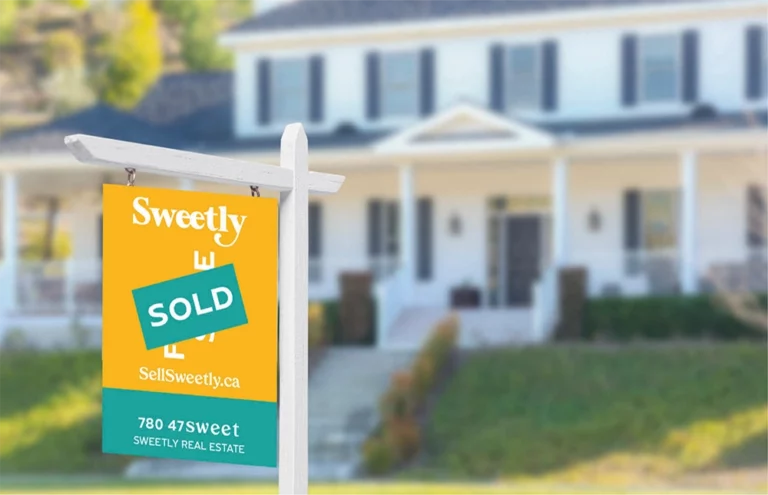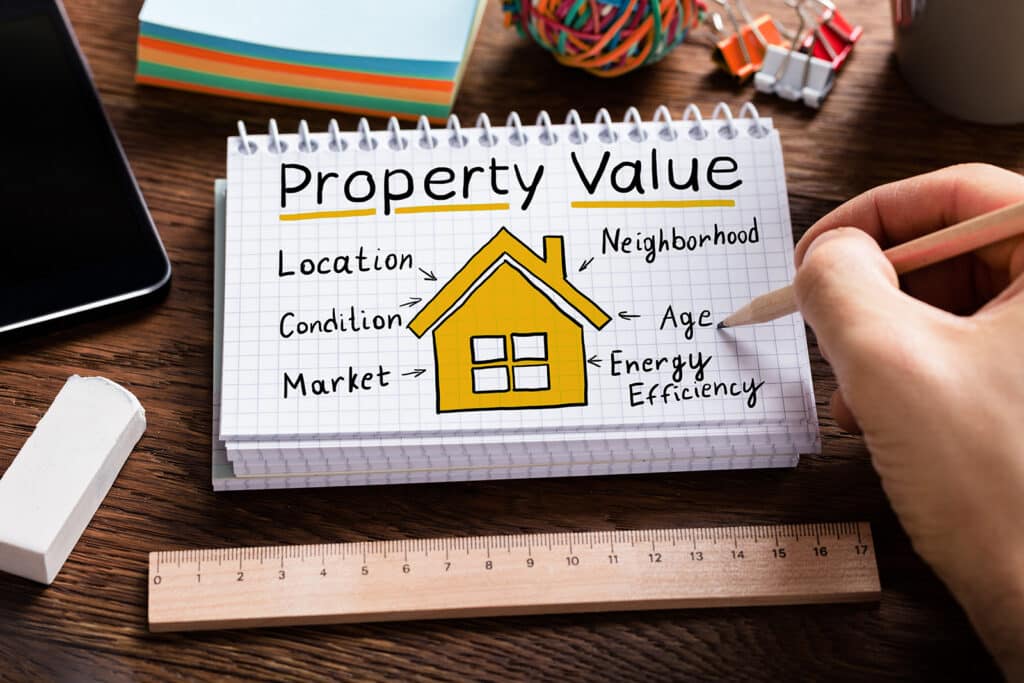The costliest mistake you can make when buying or selling a home in Alberta is signing a contract for a home that may have underlying issues – without any conditions. The repercussions could be losing your down payment, and if you pull out at the wrong time, the other party may take legal action. There are only particular circumstances in which a home buyer should purchase a home without conditions, and your REALTOR® can advise you on this.
Below are warnings, protections, and solutions that first-time home buyers in Canada should be aware of.
Quick take: Problems and solutions home buyers may encounter in Alberta
- Signing a contract without reading the terms and conditions. The solution is to work with an experienced REALTOR®.
- Ignoring zoning laws and the municipality’s plans for the area.
- Lack of funding. Make sure that your lender approves the purchase before signing.
- Third-party interest and dower rights. Conduct a title search and ensure there are no pending lawsuits.
- Squatters or encroachment by neighbours. Check the property lines and ensure there are no squatters.
- A REALTOR® will carry errors and omissions insurance if a mistake has been made.
Quick take: Problems and solutions home sellers may encounter in Alberta
- Dower rights and third-party interests. Settle all legal issues before you list the home.
- The buyer’s financing falls through. Include what happens in the terms and conditions of sale in case the buyer fails to secure financing.
General.
- You may avoid all the problems below by collaborating with an experienced local REALTOR®.
- Alberta law allows sellers to pull out if the buyer does not deposit a down payment within a specified period.
What problems will you encounter when buying a home in Alberta?
If it is your first time buying or selling a home in Alberta, working with an experienced REALTOR® and attorney is advisable. Why?
What complicates the home buying process are laws and the paperwork. Improper handling of either may mean a lawsuit or losing money. Therefore, before you accept and sign an offer, it is essential to understand what you are getting yourself into.
Remember, a contract is a binding agreement, and failure to fulfill its terms opens you up to liability.
What questions should you ask a home seller before signing a contract?
The most stressful part of buying a home is the period between signing the contract and closing. Before signing a contract, you can pull out of the purchase anytime. However, once you sign the contract, you are bound to its terms.
That makes it in your best interest to ask the following questions:
1. What is the condition of the home?
To avoid getting yourself in a legal bind, ensure that the terms of the agreement contain a home inspection clause. A conditional home inspection clause as explained in detail in a recent article, protects you and your down payment if the home inspection report fails to meet your expectation. In addition, including it in the contract gives you a safe, legal way “out” of a contract.
It is vital to understand the condition of the home. Areas that need clarity include:
- Who pays for repairs if a home inspection finds problems?
- Are there issues with the roof and foundation?
- How old is the home?
2. What are local zoning laws?
Zoning laws govern what you can and cannot do in a geographical area. Failure to comply with zoning laws may result in prosecution or fines.
Can you run a business from the home?
Can you rent the property?
What structures can you build in the area?
The most important question you should ask is: What does the municipality have planned for the area?
In Canada, home sellers are not responsible for future use limitations of a property. That means if someone sells you a home located next to a soon-to-be industrial zone, you may end up living next to a factory. That raises the question.
Can you stop the city from rezoning your neighbourhood?
Suppose the city intends to rezone your neighbourhood into a high-density area. Property owners in the area will receive a notification. The notice will contain hearing dates and deadlines.
The idea is to read and understand the notice. If it is unclear, you should get an attorney to interpret it.
If you have not signed the papers, you should ask the seller their reason for selling the property. If it is because of zoning changes, make sure you are comfortable with the changes or future restrictions before buying.
If there are proposed zoning changes in the area, the questions you should ask include:
- Will the proposal affect the use and enjoyment of the property?
- What are the pros and cons of the new changes?
If a property you intend to purchase has zoning issues, we recommend consulting with an attorney.
What to remember
- CRA (County Residence Agriculture) zoning in Alberta means you may use the property to keep livestock.
- Your right to own, use, and enjoy the property in Alberta is not unlimited. The Law of Nuisance may prohibit some activities such as running a business from your home or keeping livestock in the area.
- Ownership of land in Alberta extends to the airspace above and what lies beneath except for valuable minerals, including gold, silver, or other “crown reserved minerals.”
3. What happens if funding falls through?
Your lender may refuse to fund your purchase for a variety of reasons. What is vital to remember is if you have signed the purchase agreement and your lender does not provide funding. Then, the seller may have grounds to file a civil suit, and you may lose your down payment.
To avoid legal troubles, you should only sign a conditional contract. That contract allows you to pull out of the transaction without litigation if conditions are not met.
4. Is there a pending lawsuit on the property?
Property title issues may haunt you after purchasing the property. Consequently, before you sign the papers, make sure there are no court cases involving the property. Then, check the paperwork and ensure that the property titles are clear.
To avoid legal issues when buying real property in Alberta, do the following:
- First, collaborate with an experienced REALTOR® and or an attorney.
- Request a land title search.
5. What is adverse possession?
Adverse possession or “squatters rights” is a law that allows squatters to take possession of the property if the individual resides there for a specified period. In Alberta, the period is ten years.
What to remember
- Tenants can become squatters. Meaning if you allow someone to stay on or use your property for ten years, that person may gain adverse possession rights.
- Check the property lines. Is the fence where it should be?
Other problems you may encounter when buying a home in Alberta include:
- Dishonest sellers. We recommend getting a home appraisal, conducting a title check, and working with an experienced REALTOR® or attorney.
- Problems with your lender. Before signing a purchase contract, make sure your lender approves the purchase.
- Conduct a home inspection. You may negotiate a lower price, or you may ask the seller to repair flaws before purchase. Expensive problems include termite infestation and foundation and roof issues.
- Is the property in a disaster-prone area?
What problems will you encounter when selling a house in Alberta?
You may avoid most issues associated with selling a house in Alberta by listing the property “as-is.” Listing the property as-is tells the buyer that you are unwilling to do any repairs before closing and that there are no guarantees that everything is in good working condition.
If you are selling an older home that requires expensive repairs, consider selling the property as-is. That way, you may avoid any expenses or lawsuits that may arise.
Selling as is does not necessarily mean that the home must be dilapidated or in bad condition. Cleaning up the home, making necessary repairs, and staging the home properly are advisable.
That said.
Common problems you will encounter when selling a home in Alberta include
The buyer’s financing falls through, or you find another buyer willing to spend more on the property.
Like the buyer, you risk litigation if you pull out of an already signed contract. But what if the buyers’ financer backs out? Or what if you get a better offer?
Before you sign any papers, it is in your best interest to give yourself a way out.
What you need is a plan. Your contingency plan should contain:
- The conditions for selling the home, for instance, if you intend to use the proceeds to purchase another home in Alberta. Include a conditional clause for it.
- What happens to the down payment should either party choose to back out. Do you refund it? Or keep a percentage of it?
If you want to become a more powerful home buyer and purchase a home without conditions, Sweetly offers the Swift Sale PLUS which allows you to purchase your next home with confidence before selling your original home.
What to do if you receive a higher offer after signing a contract?
The first thing to do is to check the conditions of the signed contract. Do you have a safe, legal way out?
Sometimes a negative home inspection report may cause a buyer to back out.
Suppose you have already signed a contract. A home inspection report does not allow the seller to back out, but the buyer has the right to back out if the report is negative. The buyer may also negotiate a lower price or ask for repairs. That means you may use a negative inspection report to get the buyer to voluntarily withdraw the offer. However any issues that are revealed in a negative home inspection report must be revealed to the next buyer.
What to remember
- You cannot accept a new offer after signing the contract.
- If you accept a new offer, the first buyer may go to court and apply for a Lis Pendens (pending lawsuit).
- You cannot sell the home until the Lis pendens is lifted.
Other problems you may encounter when selling a home include
- Setting a price. REALTORS® discourage “selling a home by owner” because there is no guarantee that you will get fair market value. Also, the home may stay on the market for longer than it has to. REALTORS® have access to a large pool of buyers and professional approaches when valuing property as explained in a previous article. You want to avoid overpricing and underpricing the home.
- Staging the home can be problematic, and it can interrupt your schedule.
- Unrealistic expectations. Not all aspects of the sale process will go as you expect. We recommend setting realistic expectations.
- Legal and dower issues.
Sweetly’s Models
Sweet Sale
With the Sweet Sale, you get a Fair Price Cash Offer. It’s a fair offer that lets you sell without showings and choose your own moving day.
Start your sale with a Free, Fair Price Cash Offer, which remains open to you for 60 days. Activate our offer any time – even without listing/showing your home, or at some later date if your home isn’t selling. Compare our hassle-free, all-Cash offer to a traditional MLS® listing. Make an informed decision. Choose what’s best for you. Offers remain open to our customers for 60 days. Our offer is withdrawn if you list with an outside REALTOR®.
Listing With Confidence
A traditional listing allows you to test the market with your price. A listing with Sweetly comes with it’s own set of perks.
- Test the market with confidence, knowing you’ll have a Sweet Sale available if your home doesn’t sell.
Start with an fair price cash offer to know the current value of your home. Then, decide ‘how’ you want to sell, BUT before you do, you can shop at your pace to find the right house. Beat out any competing buyer because you won’t need a ‘condition of sale’ so your offers are stronger without spending extra money. Once you have a firm purchase you can sell your house to Sweetly on a day that works best for you.












